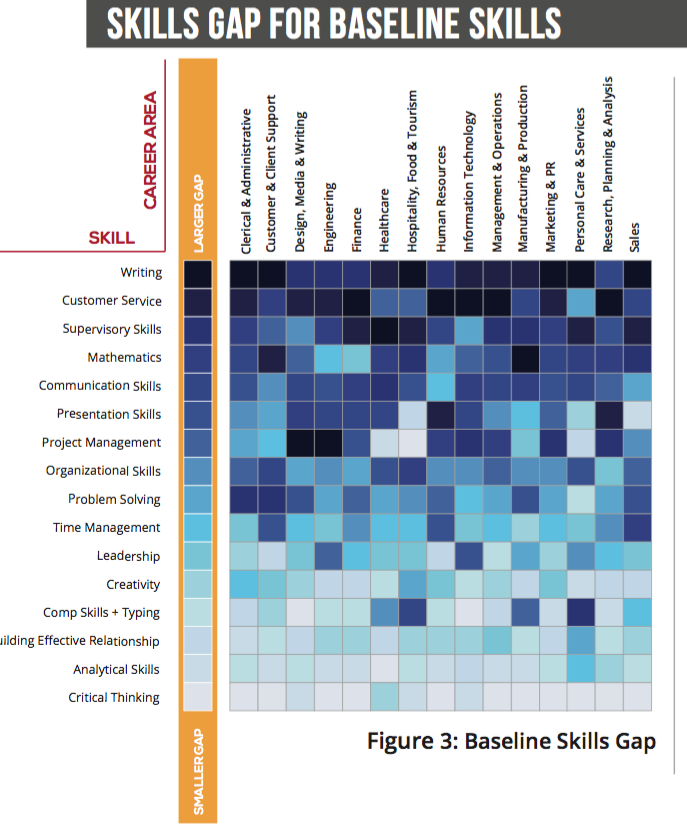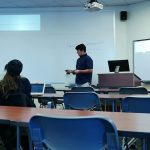Resident engineer, Tim Diamond, takes a detour from contract manufacturing to discuss the importance of communication in the workplace. In the comprehensive interview provided, Mr. Diamond unveils the crisp meaning behind clear and effective communication. Mr. Diamond strives for clear and concise business documents and provides the key skills to become a successful professional engineer. He values effective communication because without it a person or group of people would misunderstand his message. After 20 plus years in contract manufacturing, Tim Diamond is now a successful resident engineer in Pittsburgh, Pennsylvania. With the provided information, take an interest in his thoughts and ideas of effective communication in the world of engineering.
What is your professional history (include your timeline and roles)?
“ 20+ years in electronics contract manufacturing. During that time I have been a hand solder/production operator, in-circuit test repair, test technician (fix functional test failures as well as the test equipment), line technology leader (developed production processes and work instructions), manufacturing engineer (developed/approved tooling, process design, main engineering contact with customer, contributor to FMEA, control plan, etc), manufacturing engineering team leader (everything already mentioned plus trained/mentored new engineers as well as had some individuals directly reporting to me), and currently resident engineer. The resident engineer role uses the experience from all the previous ones but is focused more on the very early product design directly with the customer providing manufacturability feedback, project schedules, bridging language barriers, and in general doing whatever it takes to ensure a smooth transition from design to production. I’m typically involved with a project 18 to 24 months before production starts.”
What writing advice do you have for professional communicators?
“When writing keep communication short and direct but not rude. Use paragraphs or clearly bullet out the different topics and action items. Most professionals do not have the time or patience to read a wall of text and then try to puzzle out what you are trying to say.”
What is your one pet peeve when it comes to professional writing?
“I touched on this a little bit already. I receive 100+ emails a day that could be a waste of my time or something as serious as if I do not immediately” respond it can cause an entire factory to shut down. I do not like to see long emails that the point isn’t clear or documents that are 90% filler.
What kind of business reports do you read and/or compose regularly?
“Read: Sales revenue, forecast planning, validation submissions, quality reports, Gantt charts, quotes, customer specs, etc.”
“Write: Forecast planning, failure trends by project, project schedules, quotes, etc.”
What are your writing suggestions to make those types of reports successful?
“You need to be able to distill large amounts of data into reports that anyone could look at and understand. Never assume your audience understands the subject as well as you. Ask yourself “if I am not there to explain this, could anyone still understand it”. I often give presentations to all levels of business both technical and non-technical. What is easy to forget is that those presentations are usually shared internally when I am not there and cannot explain what they are looking at. If the report/presentation isn’t self-explanatory it is a problem. Become very familiar with Excel (pivot tables, pivot charts, VLookup), Powerpoint, and maybe later in your career Microsoft Project.”
What speaking advice do you have for professional communicators?
“Read a book or take a class on body language. You need to be able to adapt to your audience. Do they look confused because you are speaking at an engineer level when they need it explained at a preschool level? Are they yawning, staring off into space, or surfing their cell phones because you completely lost their attention? Are you unknowingly in a hostile environment because of internal politics, someone is already biased against you, or some other reason that you may never know? Do not read to your audience a report or presentation word for word and line by line. I can read for myself and if you have nothing more to add than what is already written I will quickly tune you out completely”.
Name one thing you wish you had known about business communication prior to your professional career?
“The leaders and managers are usually not the most brilliant engineer in the group. It’s the best presenter/communicator who understands the bigger picture and can communicate/present at multiple levels.”
After assessing the Burning Glass list of Baseline Skills (2016), which skills not in the top 5 would you move into the top 5…and why?
“Focusing only on Engineering my top 5 would be Problem Solving, Critical thinking, communication, organization, and then the office products (Excel, Powerpoint, Project, Word). “
“An engineer is supposed to solve problems and it’s pretty hard to do that without Problem Solving skills. If said engineer is unable to communicate the solutions no one will listen to them even if they are right. Organization and Office are the tools you need to help accomplish the effective communication.”

What team skills do you feel young professionals need the most?
“Listen and think about information from any source and form your own opinion. Don’t assume the most experienced person is always right and don’t disregard something from the new kid just because they are new with no experience.”
“Always ask yourself “is what they are saying based on a scientific fact that can be recreated/proven or is it personal opinion”. “Because we’ve always done it this way!” has never worked very well for me when explaining something to a customer.”

Tim Diamond | Resident Engineer | Tim.Diamond@KimballElectronics.com
50-B Sandune Court | Pittsburgh, PA 15239 | c 812.631.0368
Key Takeaways
After the review, it is evident that Tim Diamond has an extensive background in engineering. After college, Mr. Diamond endured more than 20 years of contract engineering. With that being said, Tim Diamond has to be an effective communicator is his line of work. Mr. Diamond focuses on being clear and to the point. Mr. Diamond talks about the importance of being short because of long extensive documents waste time. The extensive writing leads to confusion and makes the subject unclear. He also discusses the importance of focusing on the audience. Measuring the audiences’ expressions is a key part of determining if they understand the message. He emphasizes on not reading to the audience because that will cease the attention immediately.
Mr. Diamond talks about the concept of communication and how a successful engineer needs to have clear and effective communication. He states that if an engineer is unable to explain or discuss a topic that nobody listens, even if that person is correct. Mr. Diamond mentions a few key assets to be successful in the engineering field. The top priorities are problem-solving and critical thinking. Then is communication, organization, and Office products. He states that there are hard problems to understand without these key assets. Microsoft products, such as Excel and PowerPoint, are the most effective ways to communicate in the engineering field. Due to the responses by Tim Diamond, it is imperative that college students should become effective communicators in order to prepare themselves for professional-level occupations. The chart below shows skill gaps in how employers request for certain skills and the skill importance in the workforce based on a federal study. The graph has a variety of light and dark colors to show more importance in a skill for a certain job. As shown in the engineering field, project management, customer service, writing, supervisory skills, and presentation skills are the highest skill gaps. Mr. Diamond expresses the importance of a few of these such as the presentation skills with Excel and PowerPoint.
Tim Diamond Biography
Tim Diamond grew up in Shoals, Indiana where he attended Shoals High School. Mr. Diamond then went on to study at ITT Technical Institute in Newburgh, Indiana. He received his Associates of Science in electronic engineering. This was from 1996 to 1998. Then from 1998 to 1999, Tim Diamond finished his Bachelor of Science in automated manufacturing. Mr. Diamond received certifications such as the Surface Mount Technology Association. This certification gets renewed every five years, so refreshing the information is key to being a resident engineer. Mr diamond started out as a production operator and wound up at the top of the chain becoming a resident engineer. Now, Tim Diamond lives the life traveling to Thailand and other places around the world, specializing in what he does best.
Tim Diamond LinkedIn Profile
https://www.linkedin.com/in/tim-diamond-b0980881/
Stone Wright is a Junior at the University of Southern Indiana. He is pursuing a bachelor’s degree in Advanced Manufacturing Engineering. He plans to become a Manufacturing Engineering Technician after receiving his bachelor’s degree in the spring of 2021.


